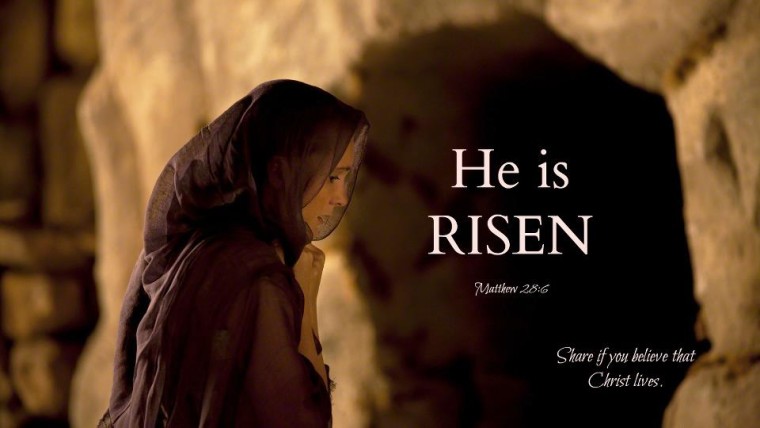Enduring the Hard Struggle
Hebrews 10:32-39
32 But recall the former days when, after you were enlightened, you endured a hard struggle with sufferings, 33 sometimes being publicly exposed to reproach and affliction, and sometimes being partners with those so treated. 34 For you had compassion on those in prison, and you joyfully accepted the plundering of your property, since you knew that you yourselves had a better possession and an abiding one. 35 Therefore do not throw away your confidence, which has a great reward. 36 For you have need of endurance, so that when you have done the will of God you may receive what is promised. 37 For,
“Yet a little while,
and the coming one will come and will not delay;
38 but my righteous one shall live by faith,
and if he shrinks back,
my soul has no pleasure in him.”39 But we are not of those who shrink back and are destroyed, but of those who have faith and preserve their souls.
Members of the early Church endured many contests and struggles of suffering. They were made a public spectacle, berated with insults, and faced persecution. Yet, they stood in solidarity with their brothers and sisters in Christ in prison and strived to joyfully bear the plundering of their property.
How did they get through such loss? By continually reminding themselves of God’s promise of a better possession. Their faith was strengthened by the courage and confidence required of them in trials. When we aren’t forced to stand strong publicly for the faith, it’s actually easier to fall away. It can be a greater challenge to hold fast to Christ in times of blessing and abundance than in times of persecution. The preacher reminds his readers how they survived tough times with boldness and joy in order to encourage them to stand firm for the long haul, during easier times when the struggle and burden seem lighter.
The Lord’s aim is that we stay connected to him though the best and worst of times. Do not shrink back from communion and intimacy with the Lord. Earlier, the preacher had exhorted:
Let us hold fast the confession of our hope without wavering, for
Hebrews 10:23-25
he who promised is faithful. And let us consider how to stir up one
another to love and good works, not neglecting to meet together, as
is the habit of some, but encouraging one another, and all the more
as you see the Day drawing near.
The key to staying connected to the Lord is faith—have faith and preserve your soul. But the ground of our faith is not ourselves, but the faithfulness of God in Jesus Christ. Up to this point in the book of Hebrews, whenever faith is mentioned, it is always in reference to the faithfulness of God to us through Jesus Christ. We hold fast “because he who has promised is faithful” (Hebrews 10:23). We were also challenged to consider the faithfulness of Jesus in Hebrews 2:17, when he is described as “a merciful and faithful high priest in the service of God.” Jesus’ faithfulness included taking on frail flesh and blood in order that he might sympathize with us in our weakness and sufferings. He is the One who can help us in our weakness, “if we will draw near to him” (Hebrews 4:12).
We live in a sinful and fallen world. Living as a Christian in such a hostile environment involves struggle and suffering. Being a Christian is no longer cool—it is not cool in our schools or our workplaces. Christians are often seen as ignorant and stubborn enemies to progress. They are shamed into silence in schools and universities when they insist on the centrality of God. They are quieted into submission in the workplace because expressions of faith are considered inappropriate and offensive to others. In social settings, Christians pursuing holiness of life are considered out of touch and out of place by those reveling in the depravity of our world.
The writer to the Hebrews is reminding his readers of the persecutions they and earlier Christians faced to inspire them to hold fast. He describes their plight as a “hard struggle with sufferings” (Hebrews 10:32). But now, that persecution had subsided. They were getting back to “life as usual.” And “life as usual” meant the danger of slipping back into pre- conversion patterns and a worldly way of living.
Have you noticed in your own life that it can be easier to be a person of faith, hope, and love when you’re going through a time of persecution than it is during times of peace? In times of plenty, it is easy to take the Lord and his people for granted and to gradually slip away.
I remember after 9/11, churches were packed. The entire Congress of the United States—Democrats and Republicans—came out on the steps of the Capitol together and sang God Bless America. So much of our nation was united in seeking the Lord’s peace in that crisis. But after the months went by—it didn’t take long—people slipped back into ordinary life again, often without thought of God. The wakeup call had come with suffering but ended soon after.

What kind of persecutions have you endured that awakened your need for God? What kind of sufferings have you gone through that brought you closer to the Lord? Have there been times in your life when you drifted away? What do you think was going on with you in respect to your circumstances?
We need to be reminded of our past faithfulness during struggles and draw from those memories to find strength for the now. The faith and trust the Hebrew Christians had in days of persecution, says the preacher, can serve as a foundation for vigorous faith now. But he is worried about their faltering. He is concerned that they are shrinking back and falling away under lesser pressures.
Beware when you find it easy to take God for granted. As you get older and older, and the years go by, do not lose heart and become discouraged. As you see the schisms in the Church over cultural, social, racial, and political agendas and the corruption in Church leadership, it can be easy to get disheartened. When you witness friends falling away, giving up on engagement with the church, and returning to a worldly lifestyle, it may be tempting to do the same thing. The questions can haunt us: Why am I still hanging on? Why do I continue to worship every week? Why am I still doing this Christian work? Why do I keep shepherding these sheep who are biting me?
It’s hard. It’s hard to hang in there with the Church over the years. When you have been part of it for 20, 30, 40, 50 years or more, you’ve “been there, done that” and it can be a challenge to keep on.
The reminder of the book of Hebrews is that there is an end to the challenge, the trials, and the tribulations! There will be a day when the biting sheep stop biting:
“ For yet ‘in a very little while,
Hebrews 10:38, NRSV
the one who is coming will come and will not delay;
but my righteous one will live by faith.
My soul takes no pleasure in anyone who shrinks back’”
So what the writer of Hebrews is challenging us to have is faith. To hang in there with God’s promises, to believe them and to trust in what Jesus did for us and the grace he gives us now. If you are in a place of faithful intimacy, great! Stay connected to the Lord. Stay in that intimate holy place. Guard your life in his holiness and maintain accountable fellowship with other Christians; you will not shrink back or fall away.
Reflection:
Are you in a posture of deliberate sinning? Have you fallen out of the habit of regular worship? Have you allowed discouragement over an apathetic church to make you apathetic about Christ? Know that God delights in the steadfast! If you feel like throwing in the towel, remind yourself that God wants to help you endure and persevere. Our faithfulness is a sign of Christ’s faithfulness being perfected in us. When you are tempted to slip away, allow the warnings of the preacher to spur you to repentance. Such back sliding is not characteristic of believers, he says: “But we are not among those who shrink back and so are lost, but among those who have faith and so are saved” (Hebrews 10:39 NRSV).
Keep on keeping on!
This post is excerpted from Draw Near: Hebrews on Christian Worship by The Rev. Charlie Holt (Houston, TX: Bible Study Media, 2019) 113-116.



